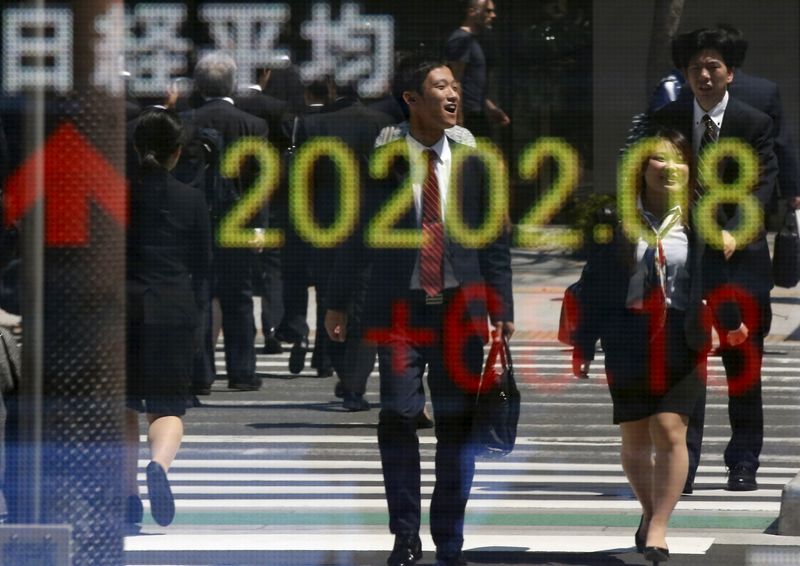(Bloomberg) -- The respite was brief: A fresh round of trade-war fears sent stock markets sinking across Asia.
Investors had nowhere to hide, with equity gauges from Japan to India plunging on Thursday. The MSCI Asia Pacific Index dropped as much as 1.4 percent, heading for its biggest slide in six weeks as more than $220 billion in equity-market value evaporated, according to data compiled by Bloomberg. The measure has lost 2.1 percent from a high less than a week ago.
“The hot and cold news on tariffs and mixed signals coming out of the U.S. are taking their toll on investor sentiment,” said Nader Naeimi, head of dynamic markets at AMP Capital Investors Ltd. in Sydney. “All in all, markets seem to be gearing up for another leg down. We are taking risk off the table.”
President Donald Trump has asked U.S. Trade Representative Robert Lighthizer to consider hiking proposed tariffs on $200 billion of Chinese goods to 25 percent from 10 percent. The measures could be implemented as early as next month.
Shares in China paced losses, as the Shanghai Composite Index came close to its bottom in July, while Hong Kong’s Hang Seng Index fell for a fourth day to its lowest level since September. Benchmarks in Japan and South Korea retreated at least 1 percent, while Australia’s slipped 0.6 percent, led by a slump in commodity producers.
BHP Billiton (LON:BLT) Ltd. sank 3.3 percent in Australia, the most since February, after workers at its Escondida copper mine in Chile overwhelmingly voted in favor of a strike. The dispute is one of a number in the country that could lead to supply woes for the key industrial metal.
Tech Burden
Technology stocks including Tencent Holdings Ltd., Samsung Electronics (KS:005930) Co. and Taiwan Semiconductor Manufacturing Co. were the biggest drags in Asia, despite gains for the sector in the U.S. on Wednesday. The S&P 500 Index itself erased an advance in that session as trade concerns and the Federal Reserve’s moves to stick with a plan for a gradual rate hike offset bullish sentiment following Apple Inc (NASDAQ:AAPL).’s surge to a record.
Tencent’s 7.6 percent plunge this week took its market-cap loss to about $160 billion since the shares peaked in January. The slide has opened up a record 50 percent gap between analysts’ average price estimate and the current stock price, even after several of them slashed their targets last month. Tencent, which reports earnings Aug. 15, is the biggest component of the MSCI Asia Pacific Index, accounting for 2.8 percent of the gauge.
“We seem to be stuck in this continuously revolving door around the trade war and emerging market-specific issues in general,” Stephen Innes, Singapore-based head of trading for Asia Pacific at Oanda Corp., wrote in an email. “I can’t help but exercise prudence in these conditions given the outlook for U.S.-China negotiations remains muddled.”
